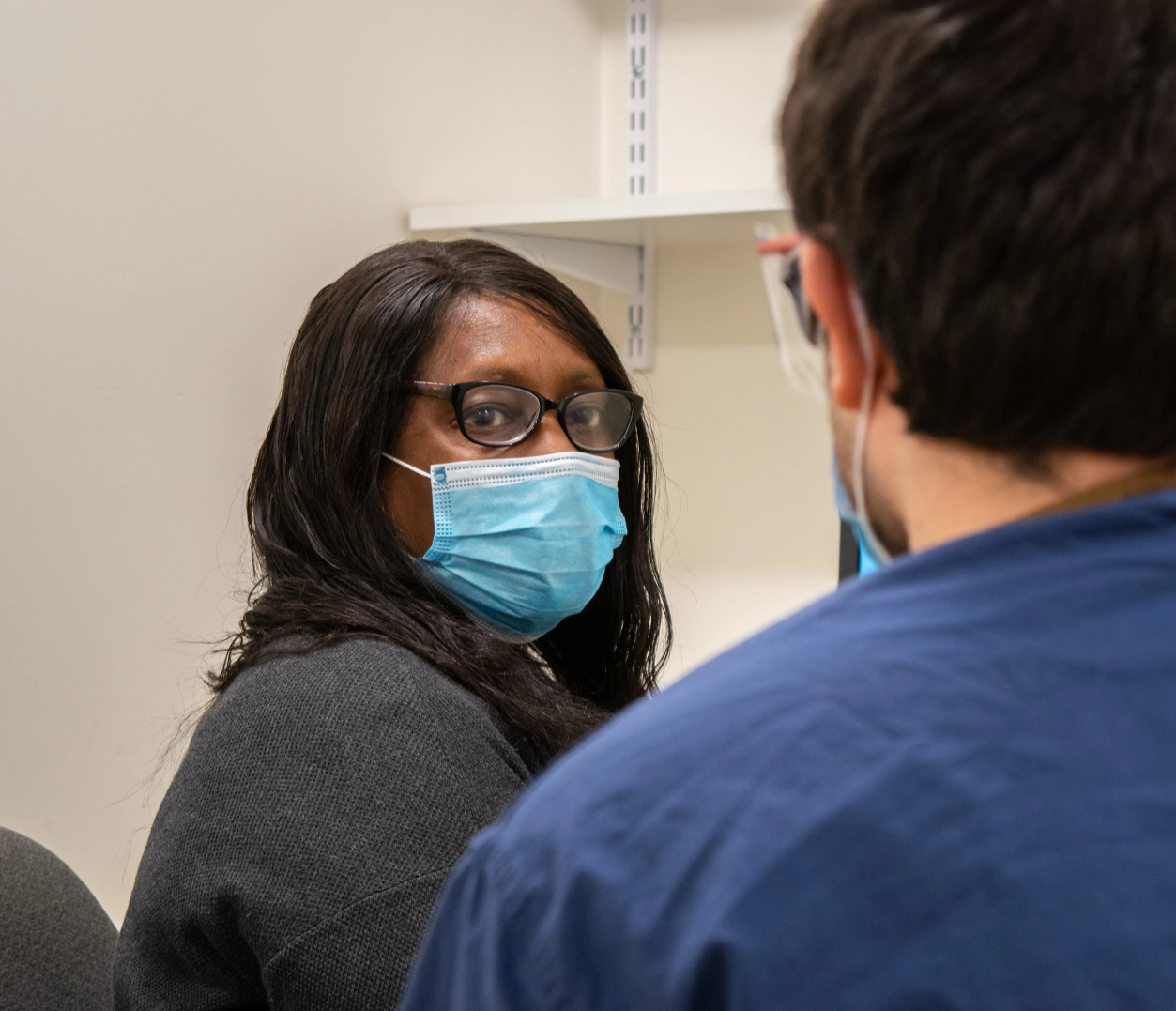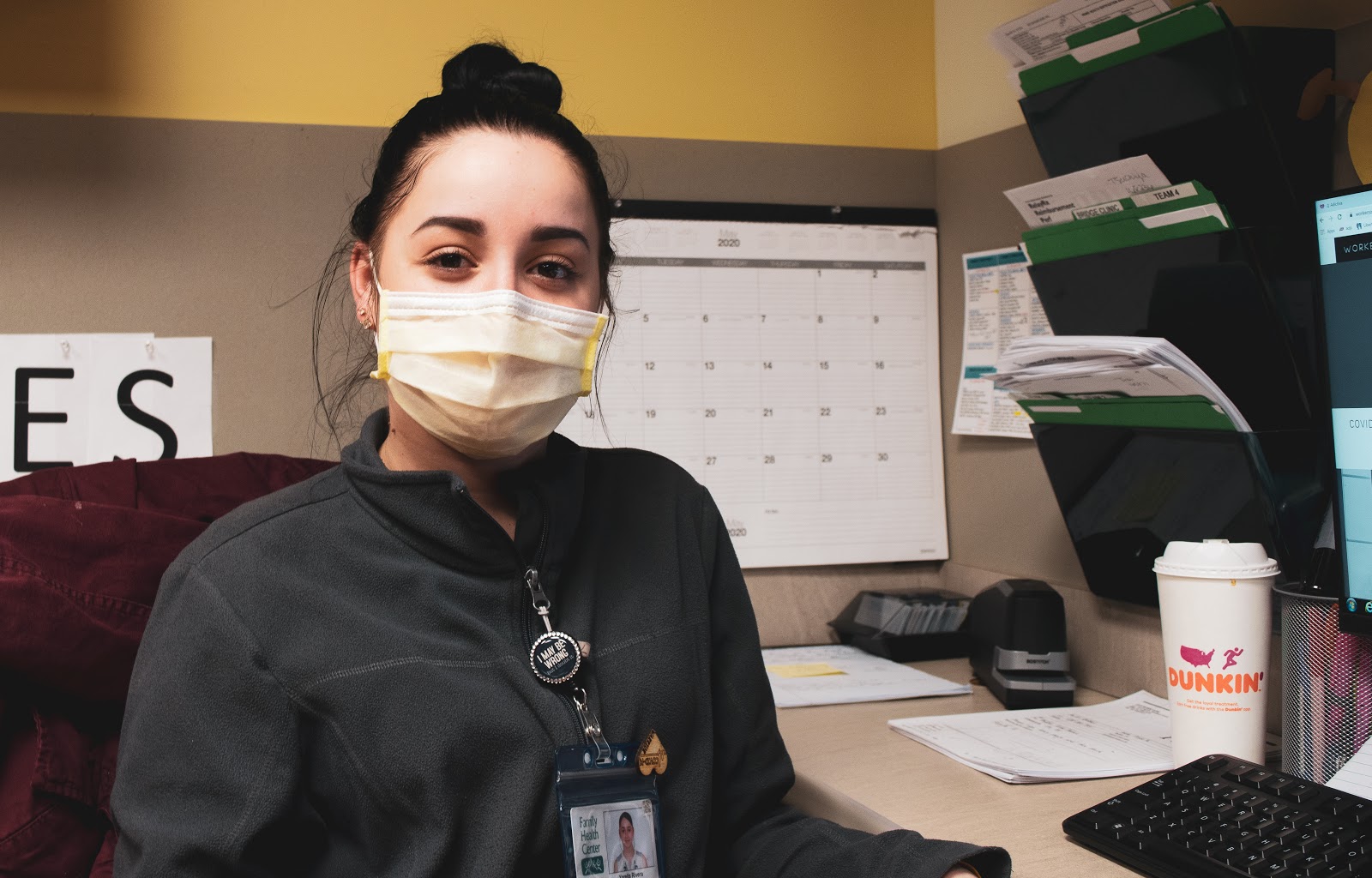How We Support Diverse Trainees
 Josephine Fowler, MD, MSc, family medicine attending and vice chair of clinical services for the Department of Family Medicine & Community Health, precepting 2020 grad Jorge Finke, MD. Photo by An-Hoa Giang, MD, for the Workers of Worcester project. Read Josephine’s story here.
Josephine Fowler, MD, MSc, family medicine attending and vice chair of clinical services for the Department of Family Medicine & Community Health, precepting 2020 grad Jorge Finke, MD. Photo by An-Hoa Giang, MD, for the Workers of Worcester project. Read Josephine’s story here.
As we work to recruit more diverse residents by valuing their perspectives and the skills that have allowed them to navigate numerous systems designed to exclude them, we recognize that we have a responsibility to build an inclusive and supportive environment for all. We are committed to a culture of change that listens when residents speak about their experiences.
BIPOC and LGBTQ+ residents are able to select faculty mentors who come from the same identities. We understand that many factors influence the fit of a mentorship relationship, including personality, clinical and research interests, mentorship and learning style, and personal identity and experience. Residents are assigned a faculty coach at the beginning of their intern year based on these factors, but are able to change coaches if desired or to seek out additional mentorship relationships to ensure their academic and personal needs are being met.
Our SOAR curriculum is designed to educate residents from all backgrounds about white supremacy and other structures of oppression as a foundation for self reflection, challenging assumptions, and changing individual behavior. Sessions on Microaggressions and Upstander Training support this process and residents are encouraged to report microaggressions through an anonymous reporting system or by sharing with trusted mentors. A session on Changing Practice as a Trainee helps residents gain the skills necessary to advocate for their patients and colleagues within the health system, while one on Structural Violence and Moral Injury focuses on how we deal with structures of oppression and social inequities that we feel ill-equipped to address.
A longitudinal series of sessions on Supporting Diverse Trainees allows residents to reflect on their individual learning style and the factors that can interrupt their educational process (including microaggressions, ineffective teaching techniques, and unhelpful forms of feedback). This information is shared (in a deidentified format when desired) with senior residents, faculty, and residency leadership so they can adapt and grow in their teaching style and approach to providing feedback. In these conversations, residents can share how we’re doing as a program in supporting them and ways that we need to change.
Recognizing that Black, Brown, LGBTQ+, and other residents who face structural oppression are often expected to bear the emotional and cognitive labor of educating their colleagues and engaging in heavy conversations that may bring up personal trauma and adversity, we offer specialized discussion groups following SOAR framework sessions. Residents are able to self-select a caucus group among three options: those new to the concepts discussed in the session, allies/co-conspirators who are knowledgeable and working to dismantle inequities, and those who have personal experience with oppression and wish to process in a safe space.
Finally, we host Affinity Groups for BIPOC and members of the LGBTQ+ community. These groups include faculty, residents, students, and staff, providing opportunities for networking and support. Members are able to share personal struggles and thoughts on current events, while also building mentoring and collegial relationships.
 Yorelis Rivera, unit clerk at Family Health Center of Worcester. Photo by An-Hoa Giang, MD, for the Workers of Worcester project.
Yorelis Rivera, unit clerk at Family Health Center of Worcester. Photo by An-Hoa Giang, MD, for the Workers of Worcester project.